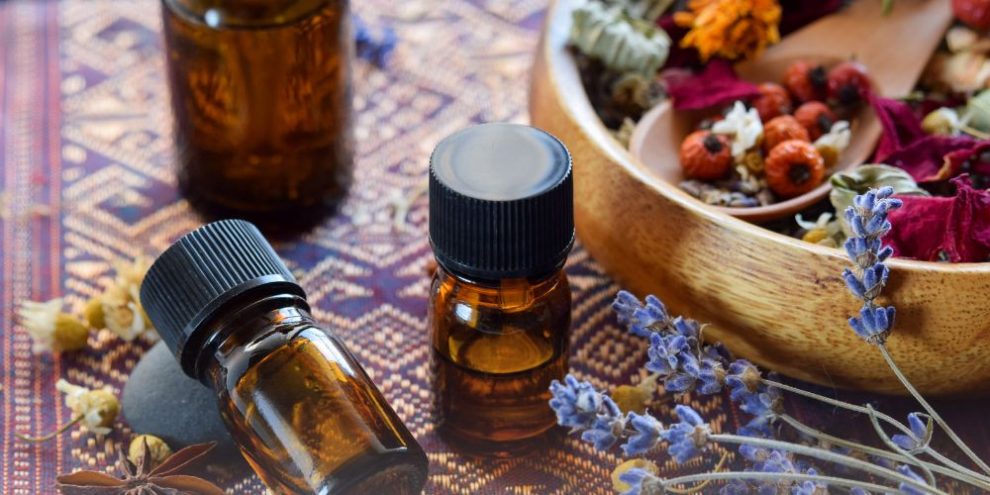
Struggling to get a good night's sleep? Essential oils might just be the natural remedy you've been looking for.
These aromatic plant extracts are renowned for their health benefits. And many have calming and sleep-inducing properties that make them a popular choice for those seeking relaxation and improved sleep quality.
Here's everything you need to know to make the most of their benefits:
Barrie's News Delivered To Your Inbox
By submitting this form, you are consenting to receive marketing emails from: Central Ontario Broadcasting, 431 Huronia Rd, Barrie, Ontario, CA, https://www.cobroadcasting.com. You can revoke your consent to receive emails at any time by using the SafeUnsubscribe® link, found at the bottom of every email. Emails are serviced by Constant Contact
What are essential oils?
Essential oils are oils extracted from different parts of plants, like the flowers, leaves, bark, or roots.
They are made using special methods like:
- Steam distillation – where steam is used to separate the oil from the plant material
- Cold pressing – often used for citrus peels, where the oil is mechanically squeezed out
What you get is a super-concentrated liquid that smells like a stronger version of the original plant. Each oil has its own unique mix of natural compounds, and those are what give it specific benefits, such as calming your mind, easing stress, headaches or – you guessed it – helping you sleep better.
How do essential oils help with sleep?
The soothing aroma of essential oils can influence the limbic system, the part of your brain that controls emotions and memories. This interaction can promote relaxation and reduce stress and anxiety, all of which are crucial for falling asleep easily.
But not every essential oil can provide these benefits …
Top essential oils for sleep
If you’re looking for natural ways to sleep better, essential oils can be a game changer. These plant-based oils have been used for centuries to calm the mind, relax the body, and help you drift off with ease.
Lavender
Lavender is the gold standard when it comes to sleep and relaxation. Floral, fresh, and just a little sweet, lavender helps quiet the mind, ease anxiety, and slow everything down so your body can shift into rest mode.
This oil isn’t just popular because it smells nice. Research backs it up …
Studies show that lavender essential oil can improve sleep quality, reduce stress, and even help with mild insomnia. Whether you’re tossing and turning or just need help unwinding after a long day, lavender is your go-to.
Chamomile
Chamomile essential oil has a soft, sweet, and slightly fruity aroma that feels like a cozy hug for your senses. It’s well-known for its calming effects, helping your whole body relax and ease into a peaceful state—perfect for bedtime.
People often use chamomile oil in diffusers to gently fill the room with its comforting scent or add a few drops to a warm bath to melt away tension before sleep.
Studies suggest that chamomile can help you stay asleep longer and reduce those frustrating middle-of-the-night wake-ups. It’s a natural way to improve the quality of your sleep without harsh chemicals or side effects.
Valerian
Valerian essential oil has a deep, earthy scent that many people find grounding and calming. It’s been used for centuries to help improve sleep, especially for those who struggle with insomnia or restless nights.
While some studies show valerian can help people fall asleep faster and enjoy better sleep quality, the research isn’t completely consistent. Some results are promising, but others suggest more research is needed to fully understand how effective it really is.
Still, if you’re curious about natural ways to improve sleep, valerian might be worth experimenting with – just remember to use it carefully and consult a healthcare professional if you have any concerns.
Ylang Ylang
Ylang-ylang essential oil has a rich, sweet, and exotic floral scent that’s both soothing and uplifting. It’s known for its calming effects on the body, helping to lower heart rate and reduce blood pressure, which creates the perfect conditions for restful, uninterrupted sleep.
In fact, one study found that a blend of lavender, bergamot and ylang ylang helped participants fall asleep faster and enjoy deeper, more restorative sleep. This makes ylang-ylang a great addition to your bedtime routine, especially when combined with other relaxing oils.
Cedarwood
Cedarwood essential oil carries a warm, woody aroma that feels grounding and comforting. It’s known for its natural sedative properties, which can help calm the mind and body—making it easier to relax and prepare for sleep.
Many people find cedarwood helpful when they’re feeling restless or anxious, as it encourages a peaceful, restful state. Whether used in a diffuser or applied (diluted) to the skin, cedarwood oil can create a cozy, soothing atmosphere that supports better sleep.
Bergamot
Bergamot has a fresh, citrusy scent (think orange meets floral) that helps ease tension, quiet a racing mind, and prepare your body for deep sleep.
But here’s what makes it extra cool: it doesn’t just help you wind down at night – it can also help you wake up feeling more refreshed and alert.
Studies suggest that aromatic oils like bergamot may reduce psychological stress, improve sleep quality, and even support better mood and focus in the morning. Use it in a diffuser before bed or first thing when you wake up to feel more balanced, mentally and physically.
Bonus: Unlike some citrus oils, bergamot has calming rather than energizing effects, so it won’t mess with your wind-down routine.
How to use essential oils for sleep
Using essential oils is simple, but a little guidance goes a long way to get the best results safely. Here are some of the easiest and most effective ways to bring these calming scents into your bedtime routine:
1. Diffuse it
Add a few drops of your favorite essential oil to a diffuser. Let the mist fill your room with soothing aromas as you settle in for the night. This helps create a calm environment without direct skin contact.
2. Pillow spray
Mix essential oils with water or witch hazel in a spray bottle (about 10-15 drops per 100 ml). Lightly spritz your pillow or bedding before sleep for a gentle, relaxing scent all night long.
3. Add to a warm bath
Put a few drops of essential oil into your bathwater (diluted in a carrier like Epsom salts or a bit of milk). The warm water helps relax muscles while you breathe in the calming aroma.
4. Topical use with a carrier oil
Essential oils are very concentrated—never apply them directly to your skin. Instead, mix a few drops with a carrier oil like coconut, jojoba, or almond oil. Massage the blend into your wrists, neck, or feet to help your body unwind.
5. Inhalation
For a quick calm-down, place a drop of oil on a tissue or cotton ball and inhale gently. This can help ease stress right before bed without needing any special equipment.
Safety tips
- Choose high-quality, pure essential oils to ensure effectiveness and safety.
- Always dilute essential oils before applying to skin.
- Avoid contact with eyes and sensitive areas.
- If you’re pregnant, nursing, have allergies, or any health conditions, consult a healthcare professional before using essential oils.
- Test with small amounts first to check for any skin reactions.
- Keep oils out of reach of children and pets.
Using essential oils to help with sleep
Incorporating essential oils into your nightly routine can transform your sleep experience, naturally. Experiment with different oils and methods to find what works best for you, and say goodbye to restless nights. Embrace the power of nature and enjoy rejuvenating sleep with the help of these aromatic wonders.
Enhance your sleep naturally with essential oils, and wake up refreshed and ready to tackle the day ahead. Experience the difference tonight!











